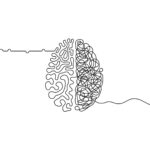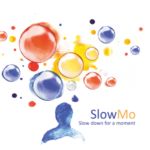
Rosalind McAlpine and Karel Kieslich summarise a recent systematic review which focuses on the rapid anti-suicidal ideation effect of ketamine.
[read the full story...]
Rosalind McAlpine and Karel Kieslich summarise a recent systematic review which focuses on the rapid anti-suicidal ideation effect of ketamine.
[read the full story...]
Lydia Poole reviews a recent randomised controlled trial evaluating group metacognitive therapy for depression and anxiety in cardiac patients.
[read the full story...]
Raphael Rifkin-Zybutz and Sameer Jauhar summarise the recently published ANTLER trial, which explores whether antidepressant maintenance can reduce the risk of relapse in depression.
[read the full story...]
Douglas Badenoch helps us prepare for another CAMHS Around the Campfire session by exploring a recent cluster RCT on early language screening and intervention using the Nuffield Early Language Intervention.
Follow #CAMHScampfire on Twitter at 5pm BST on Monday 13th September for an online journal club discussing this paper. Or sign up now to join the free webinar hosted by ACAMH.
[read the full story...]
Anya Borissova summarises a recent randomised placebo-controlled trial that evaluated ketamine metabolites, clinical response, and gamma power for major depression.
[read the full story...]
Imogen Bell blogs about a recent randomised controlled trial of the SlowMo app, which aimed to slow down thinking patterns and correct interpretation biases in people experiencing paranoia.
[read the full story...]
A UCL MSc group of students review a US randomised controlled trial of the ‘Care Ecosystem’; collaborative care for dementia delivered by telephone and internet, which suggests improvements in quality of life and caregiver well-being, and reductions in health service use.
[read the full story...]
James Rucker and Sameer Jauhar summarise a recent RCT on the effectiveness of psilocybin assisted therapy versus escitalopram assisted therapy for major depressive disorder.
[read the full story...]
Linda Gask reviews a recent randomised controlled trial on the clinical efficacy of a Decision Support Tool (Link-me) to “guide the intensity of mental health care in primary practice”.
[read the full story...]
Dave Steele summarises a recent randomised controlled trial, which suggests that there may be benefit in self-stigma programmes for those with severe mental illness, but more work is needed.
[read the full story...]